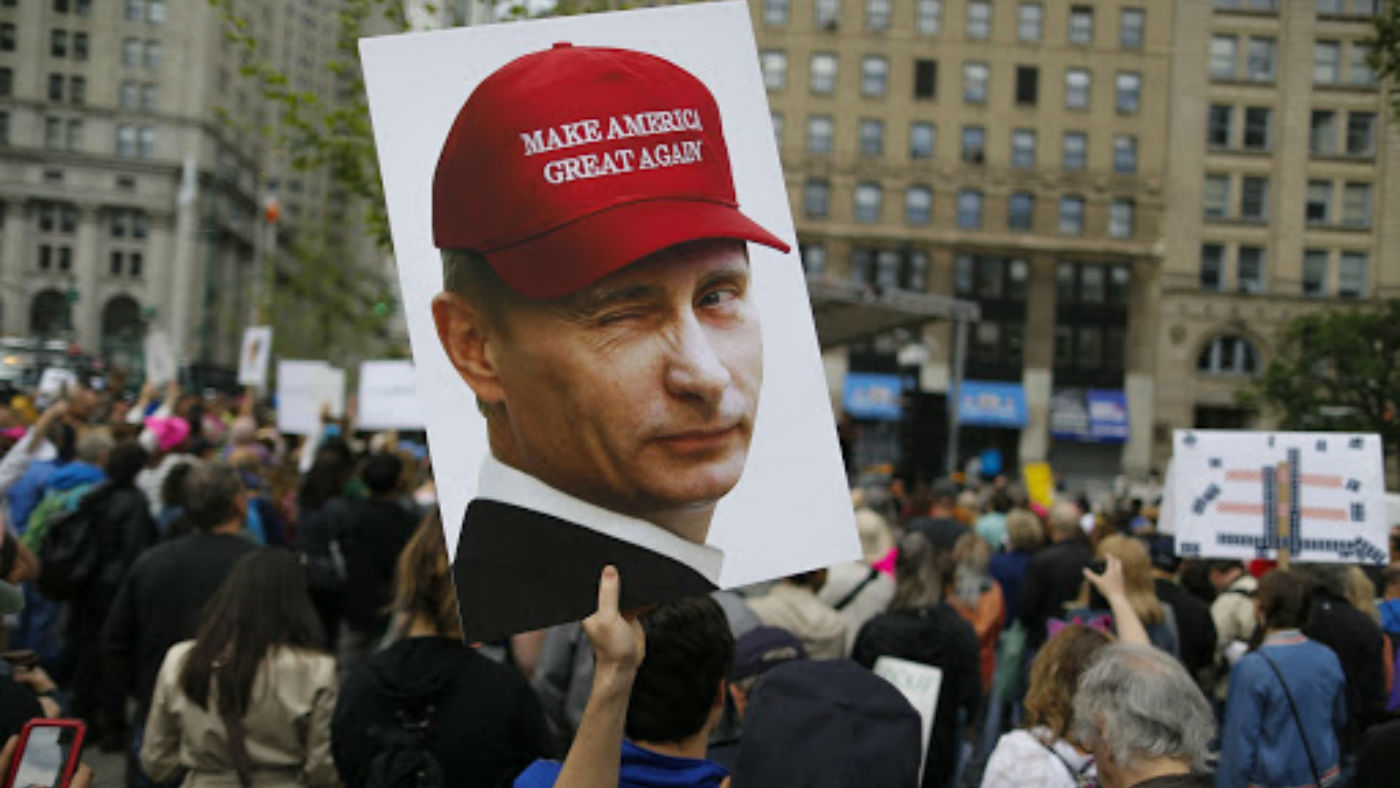Russia ‘influenced election with fake profiles’, Facebook says
Facebook acknowledged that Russian propagandists spent $100,000 on election ads last year

A free daily email with the biggest news stories of the day – and the best features from TheWeek.com
You are now subscribed
Your newsletter sign-up was successful
Russian-funded covert propaganda posts from fake profiles on Facebook were likely seen by as many as 70 million Americans during last year’s US Presidential election.
A recent investigation by The New York Times, and new research from the cybersecurity firm FireEye, revealed the mechanisms by which suspected Russian operators used Twitter and Facebook to spread anti-Clinton messages and promote the hacked material they had leaked.
This week Facebook’s chief security officer, Alex Stamos, revealed that Russia had “likely” used 470 fake accounts to buy about $100,000 worth of advertising promoting “divisive social and political messages” to Americans.
The Week
Escape your echo chamber. Get the facts behind the news, plus analysis from multiple perspectives.

Sign up for The Week's Free Newsletters
From our morning news briefing to a weekly Good News Newsletter, get the best of The Week delivered directly to your inbox.
From our morning news briefing to a weekly Good News Newsletter, get the best of The Week delivered directly to your inbox.
One expert told The Daily Beast that the propaganda posts on Facebook were likely seen by a minimum of 23 million people and might have reached as many as 70 million.
“That means up to 28% of American adults were swept in by the campaign,” says the website.
The New York Times investigation reveals new pages and profiles were set up on the social network by Russians in order to regularly post anti-Clinton rhetoric.
One, now deleted page, called SecureBorders positioned itself as the work of a group of Americans concerned about US border security.
A free daily email with the biggest news stories of the day – and the best features from TheWeek.com
“America is at risk and we need to protect our country now more than ever, liberal hogwash aside,” the page's tagline read.
But an article by the Russian news outlet RBC revealed the page was created and run by the St. Petersburg-based Internet Research Association, identified in a US intelligence report from January as a farm of “professional trolls” financed by a Vladmir Putin ally.
According to RBC’s investigation, SecureBorders had great success with their posts, like a single post boosted through Facebook ads that was seen by 4 million people, shared 80,000 times, and accrued 300,000 likes.
Facebook says it is studying the 2016 campaign in order to learn how to defend against similar interventions in the future.
“We know we have to stay vigilant to keep ahead of people who try to misuse our platform,” Alex Stamos, Facebook’s chief security officer, wrote on Wednesday in a post about the Russia-linked fake accounts and ads. “We believe in protecting the integrity of civic discourse.”
But “critics say that because shareholders judge the companies partly based on a crucial data point — 'monthly active users' — they are reluctant to police their sites too aggressively for fear of reducing that number,” reports the New York Times.
-
 What are the best investments for beginners?
What are the best investments for beginners?The Explainer Stocks and ETFs and bonds, oh my
-
 What to know before filing your own taxes for the first time
What to know before filing your own taxes for the first timethe explainer Tackle this financial milestone with confidence
-
 The biggest box office flops of the 21st century
The biggest box office flops of the 21st centuryin depth Unnecessary remakes and turgid, expensive CGI-fests highlight this list of these most notorious box-office losers
-
 What happens now that the US-Russia nuclear treaty is expiring?
What happens now that the US-Russia nuclear treaty is expiring?TODAY’S BIG QUESTION Weapons experts worry that the end of the New START treaty marks the beginning of a 21st-century atomic arms race
-
 Epstein files topple law CEO, roil UK government
Epstein files topple law CEO, roil UK governmentSpeed Read Peter Mandelson, Britain’s former ambassador to the US, is caught up in the scandal
-
 Iran and US prepare to meet after skirmishes
Iran and US prepare to meet after skirmishesSpeed Read The incident comes amid heightened tensions in the Middle East
-
 Israel retrieves final hostage’s body from Gaza
Israel retrieves final hostage’s body from GazaSpeed Read The 24-year-old police officer was killed during the initial Hamas attack
-
 China’s Xi targets top general in growing purge
China’s Xi targets top general in growing purgeSpeed Read Zhang Youxia is being investigated over ‘grave violations’ of the law
-
 Ukraine, US and Russia: do rare trilateral talks mean peace is possible?
Ukraine, US and Russia: do rare trilateral talks mean peace is possible?Rush to meet signals potential agreement but scepticism of Russian motives remain
-
 Panama and Canada are negotiating over a crucial copper mine
Panama and Canada are negotiating over a crucial copper mineIn the Spotlight Panama is set to make a final decision on the mine this summer
-
 Why Greenland’s natural resources are nearly impossible to mine
Why Greenland’s natural resources are nearly impossible to mineThe Explainer The country’s natural landscape makes the task extremely difficult